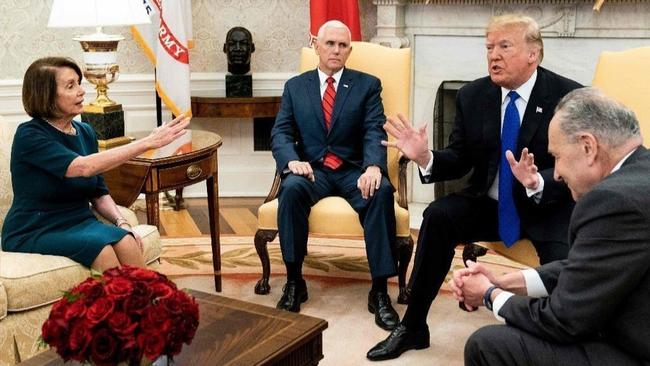Morgan Stanley: The Market Stakes Are Now Even Higher For Congress To Reach A Stimulus Deal Tyler Durden Sun, 08/16/2020 - 17:00
By Michael Zezas, chief political strategist at Morgan Stanley
The benign market reaction last week might lead you to believe that the failure to reach a deal on another round of fiscal stimulus in the US means more aid isn’t required to keep markets and the economy on their V-shaped recovery path. On the contrary, it remains crucial, and the stakes are now even higher.
Consider the following:
* The risks to stimulus action have risen, but so has its size if enacted: The lead-up and subsequent reaction to the stalled negotiation by Republicans and Democrats delivered two important insights. The first is that the size of a deal, if it comes together, is likely higher than we and many investors expected. That’s because there’s bipartisan agreement on another round of stimulus checks to households, which we estimate has a price tag of US$300-600 billion. Additionally, we’d assumed Democrats would settle for US$250 billion of state and local aid, a number in the zone of what Republicans have already offered per various media reports. That a deal hasn’t materialized suggests that Democrats are holding out for more. Taken together, the price tag for stimulus appears more in the US$1.5-2 trillion range, rather than our initial US$1 trillion estimate. The second is that risks to the deal have risen. The president’s executive orders attempting to extend supplemental unemployment benefits, temporary payroll tax relief, and eviction moratoriums have likely created an incentive for both parties to watch and wait for how public opinion is shaped by them. Hence, it would not be surprising if negotiations remained stalled into September, given the passage of many of the catalysts for action (expiry of unemployment benefits, moratoriums, etc.). As anyone who prices options knows, time equals uncertainty.
* The V-shaped recovery is under way, but a lack of stimulus could interrupt that progress: As our global economics team points out, there has been a solid V-shaped rebound so far and the US economy has already made up a lot of lost ground. However, prolonged delays in stimulus could weigh on household consumption and prompt state and local austerity, where we estimate that, without aid, states are facing US$180-375 billion of revenue shortfalls through FY21.
* The sharp rally in risk markets leaves less obvious upside: At current levels, we're near price targets in key asset classes, like US equities and credit, which our colleagues set on the assumption of a V-shaped recovery. Accordingly, the easy gains of reopening the economy may be largely priced in, and the uncertainty about whether economic growth can continue apace without fiscal support may not be.
Hence, another round of stimulus is the difference between ensuring that the economic recovery continues uninterrupted and a meaningful short-term pullback in growth. It may also be the difference between a confident 6-12- month view on a variety of risk assets and a meaningful near-term correction.
From our perch, we expect Congress to hammer out a deal in time, and hence maintain confidence in the V-shaped recovery. This is largely because of the executive orders issued last weekend. We detail our arguments here, but in short, the mechanics of the orders raise significant questions about how quickly unemployment benefits can be delivered and in what size. They also raise questions about if payroll tax benefits can be delivered at all. Hence, we expect building political pressure to address these deficiencies to bring Congress back to the negotiating table.
What would make us change our view and flag a more cautious market outlook? Time and money. If talks remain stalled deep into September, and reports are that Republicans and Democrats remain far apart on top-line numbers for the deal, it may be too close to the election to get it done. The policy disagreements on stimulus may have hardened and politicians may be eager to get on the campaign trail and away from DC ahead of the November election.
http://dlvr.it/RdmQ2R

No comments:
Post a Comment